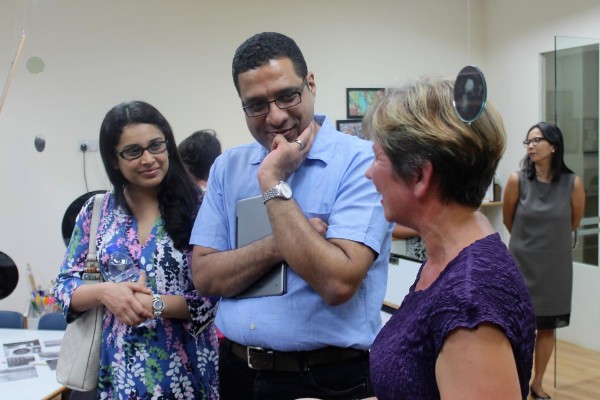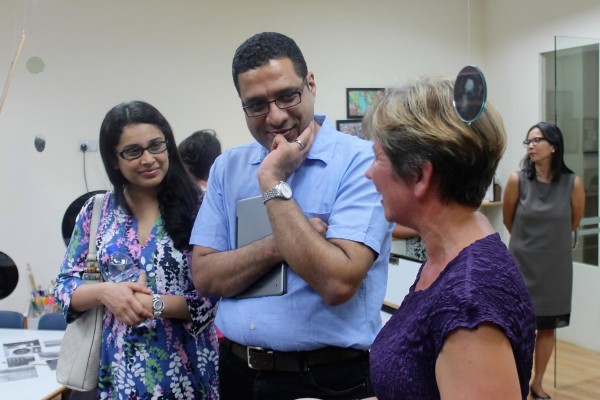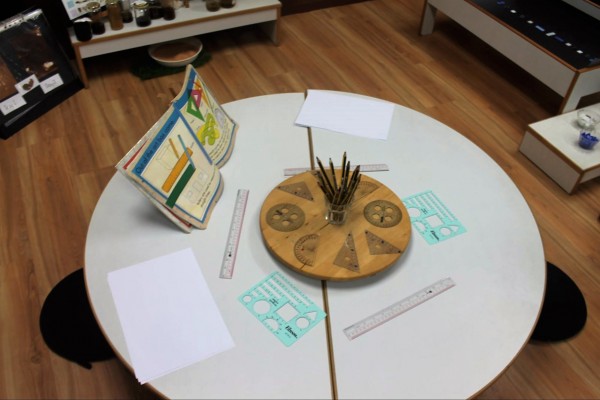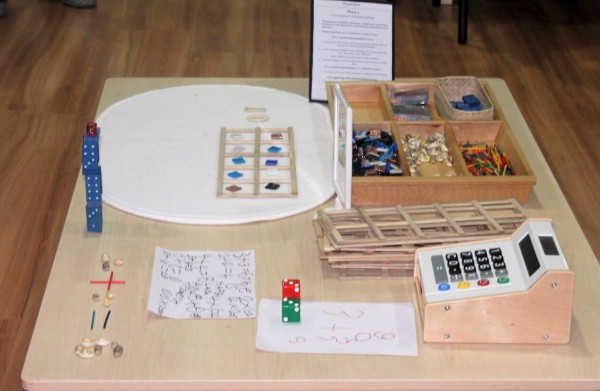Rajani Patel
PYP Coordinator at EtonHouse International School Thomson
'In the IB Primary Years Programme (PYP), mathematics is also viewed as a vehicle to support inquiry, providing a global language through which we make sense of the world around us. It is intended that students become competent users of the language of mathematics, and can begin to use it as a way of thinking, as opposed to seeing it as a series of facts and equations to be memorized.' (PYP, Mathematics Scope and Sequence)
At EtonHouse International School Thomson, we host parent workshops to provide parents with opportunities to enter our classrooms to view and hear about how we teach all the curriculum learning areas through inquiry. An area that parents are often concerned about is how we teach mathematics and numeracy to their child. Our workshops present opportunities for great interaction between our parents and teachers. One teacher from each year level takes the parents on a journey through the classroom, explaining the various provocations and how they relate to mathematics learning.
It is exciting for us at to have such dialogues with our parents. They reinforce our belief that working together with parents and informing them of our practices create a strong parent-school connection.
Just as literacy is a form of communication, numeracy too is a way to represent and share information of the world around us. These are life skills and children need opportunities to use them and see them being used in real life situations which help them to make meaning of it. Worksheets and other formal teaching strategies make learning abstract and dry. This approach decontextualises learning and some children find it difficult to make connections with mathematical concepts and understandings in this way. (Every Child, 2013. NQS PLP, (66) 2013)
Numeracy is about more than counting. Recognising patterns, sorting and categorizing objects, talking about time and the patterns of the day, measuring and calculating amounts, arranging objects in space and identifying shapes, are all important aspects of mathematical thinking that contributes to numeracy. In our classrooms, teachers plan experiences and the environment, such that there are materials and resources that allow children to problem–solve and explore the world ‘mathematically’; key elements in the development of numeracy. Within our units of inquiry, teachers plan experiences and explorations that support children to explore the inquiry in an authentic manner.
There are also lots of opportunities for incidental learning, which means that learning is happening as a result of being in an environment rich in both language and mathematics without teachers giving direct directions or talking at the children. When the children gain exposure to number concepts used around them in meaningful ways, as part of everyday experiences, they begin to internalise them. They begin to recognize the numbers, the concepts that are being used by the teachers and other children.
In early childhood classrooms, when children play in the home corner using play money and the cash register, they begin to engage with counting, addition, subtraction and various math concepts. When children engage in cooking experiences, read ‘a recipe’ and measure ingredients, they are working with the mathematical concepts of volume, quantity and measurement. These experiences provide children with opportunities to connect with numeracy at their own pace and use their ideas and thinking in contexts that mirror real life. Teachers constantly facilitate these interactions within our classrooms and studio environments with the children by the deliberate use of mathematical language and ideas such as, “How many more do you need?” “How long is it?”, “It is half as long as the other one?”, or “How many cups of water do you need?”
By providing the resources that encourage such play and constantly thinking of mathematical learning within our inquiries, as well as drawing children’s attention to what they are learning when they are engaged in the experiences, our teachers play a very valuable role by scaffolding the development of children’s mathematical thinking and learning.
(Touhill, L NQS PLP e-newsletter No. 66, 2013)
Experience our inquiry-based curriculum at EtonHouse International School Thomson.





